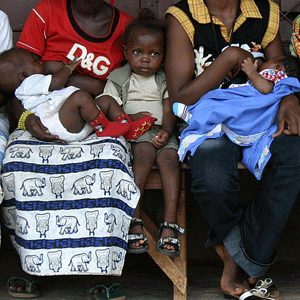
Thousands of Burundian refugees risk unwanted pregnancies, dangerous deliveries and unsafe abortions when they move next week to camps without reproductive health services, the International Rescue Committee (IRC) said.
Some 50,000 Burundian refugees will be moved out of Tanzania's Nyarugusu refugee camp, the third largest in the world, to ease overcrowding over the next three months.
They will move to two new camps, Nduta and Mtembeli, which are around 100 km (60 miles) north of the current camp and 30 km from the nearest hospital.
Funding not materialised
"You need to have safe deliveries," James Ndirangu, the IRC health coordinator in Tanzania, told the Thomson Reuters Foundation by phone.
"It's not possible to keep shuttling refugees who are either in labour or who are having complications such as haemorrhage that far."
Read: Would you believe how far people have gone to prevent pregnancy?
The IRC had expected to receive funding to work in the new camps but this has not materialised. "The visibility of this emergency is extremely low," said Ndirangu.
The Nyarugusu camp's population surged by 93,000 to 160,000 after Burundian President Pierre Nkurunziza announced in April that he would bid for a third term, leading to widespread protests and the worst violence to hit the central African nation since the end of civil war in 2005.
Nkurunziza won re-election in July, but the poll was boycotted by the opposition, who said his running violated the constitution.
The IRC has provided thousands of women in Nyarugusu camp with contraceptives, antenatal care, safe deliveries and post abortion care.
Psychological crisis
"I just can't have another child," one pregnant mother in the camp told the IRC, adding that she wanted a tubal ligation to prevent further pregnancies as she does not have enough food or clothes for her two sick children.
"I feel no hope for the future of the child."
Read: Backstreet abortions: Why is it still happening?
Female refugees have been sexually assaulted while fleeing from Burundi or collecting firewood outside the camp.
Ndirangu said he had recently met a woman who had given birth after being raped.
"She went into a psychological crisis saying... 'I didn't want this child and I don't know what to do'," he said.
Almost 200,000 Burundians around 2 percent of the population have fled their country since April, mostly to Tanzania and Rwanda.
Aid agencies aim to move up to 1,500 refugees a day from Nyaragusu to the new sites from 7 October, starting with 27,000 living on flood-prone land, Ndirangu said.
Heavy rains are predicted in October as a result of the El Nino weather phenomenon.
Read more:
Prenatal tests may uncover cancer in mother
IBM cloud system to help sequence cancer DNA
Chemotherapy appears to be safe in pregnancy
Image: Refugee mothers with their children from Wikipedia




 Publications
Publications
 Partners
Partners










